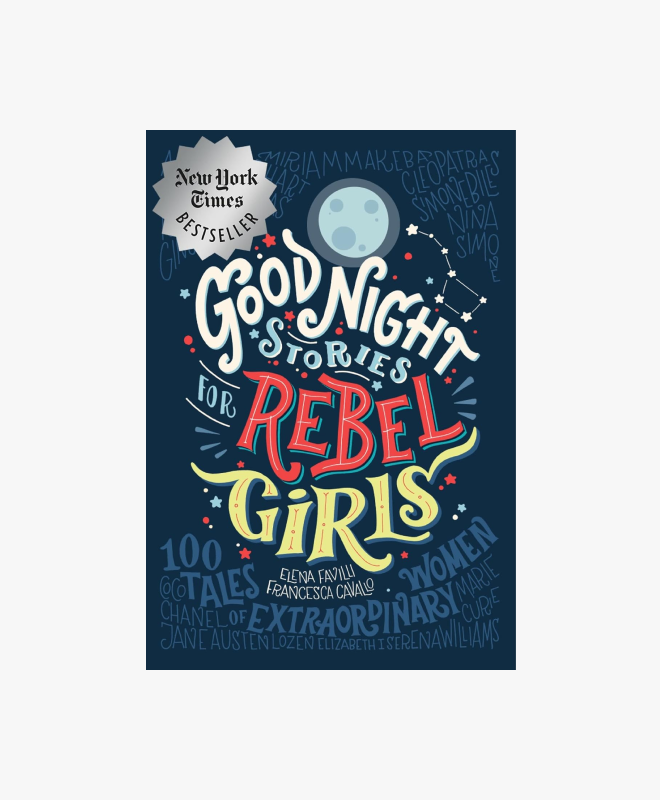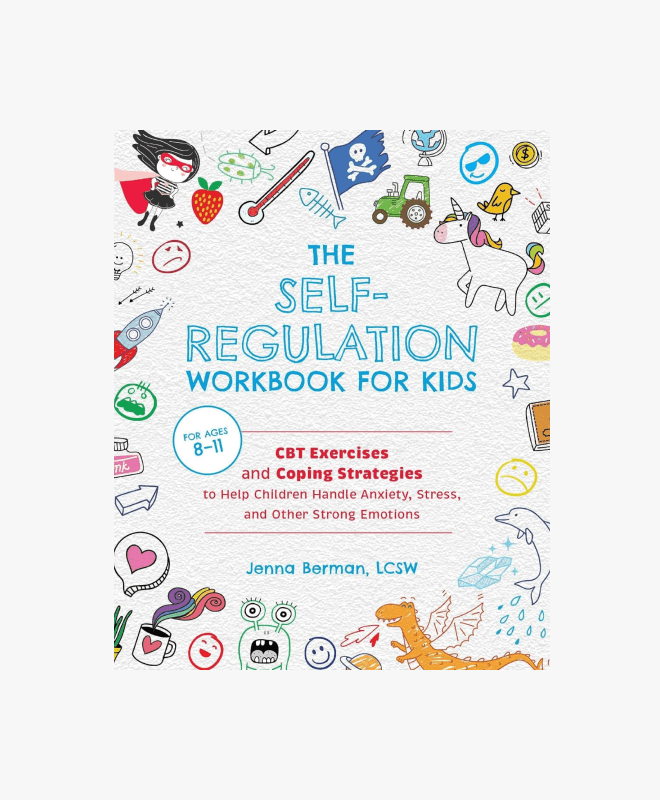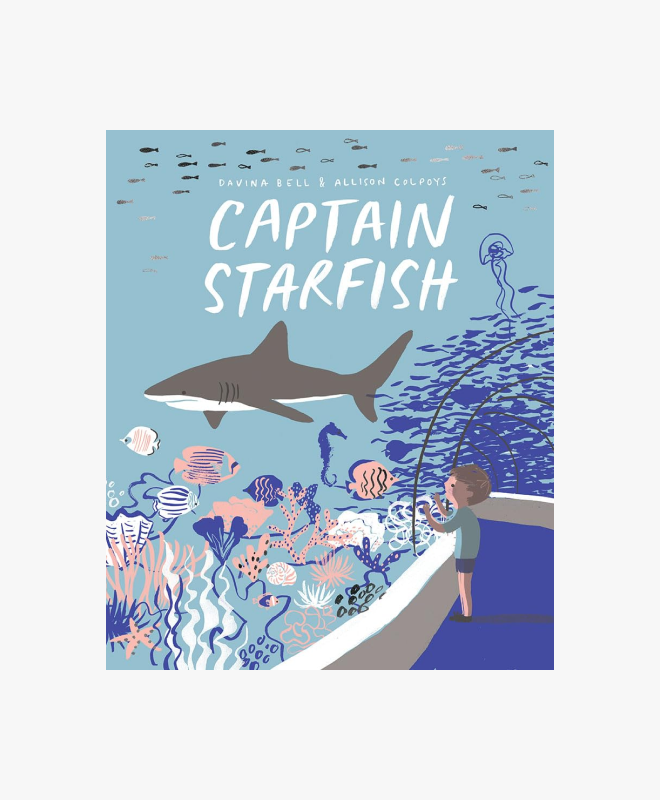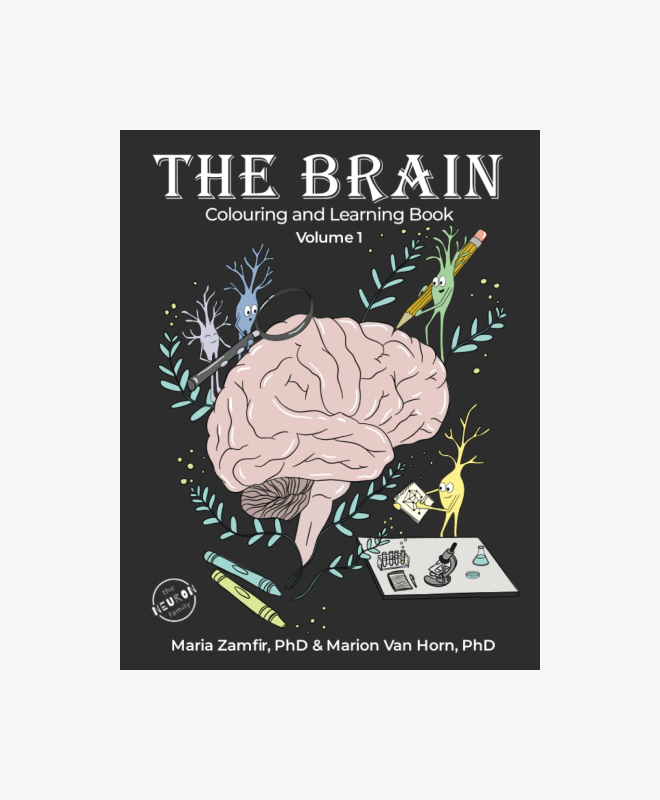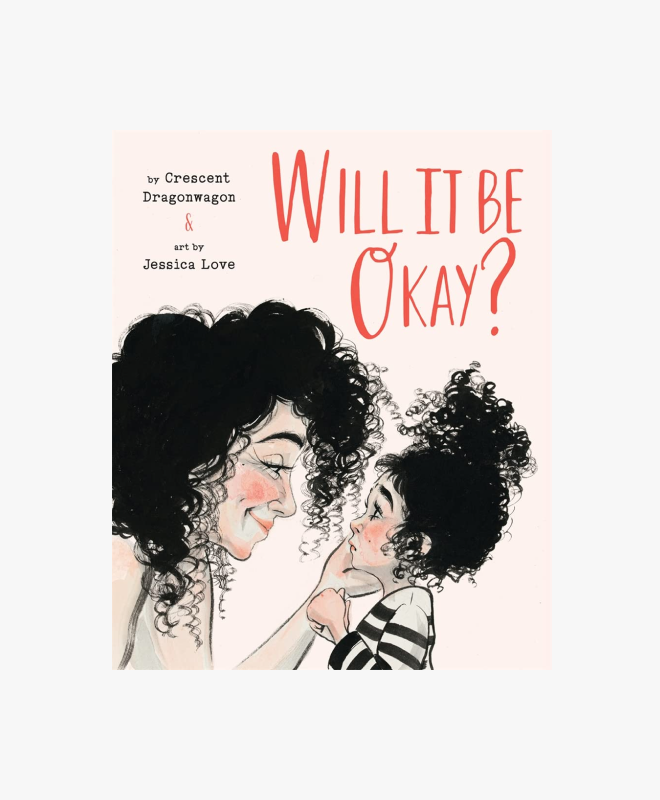“This preschool and kindergarten-friendly story is about a little pot (named Little Pot) who witnesses the big pot (named Holdin) hiding his emotions when he’s sad or angry. Little Pott tries to do the same, but it becomes too much, and he explodes. Instead of getting angry, Holdin reflects on how hard it is to keep things in. Then, Holdin shows Little Pot how to slowly blow off steam. This lovely book—and, frankly, all of Chandra Ghosh Ippen’s titles—speaks to how important it is to talk about and feel your feelings. I love how it normalizes anger and gives families language to talk about and resolve it.” —Campbell
10 Children’s Books That’ll Boost Their Emotional IQ
Courtesy of therapists who are experts at the child psychology thing.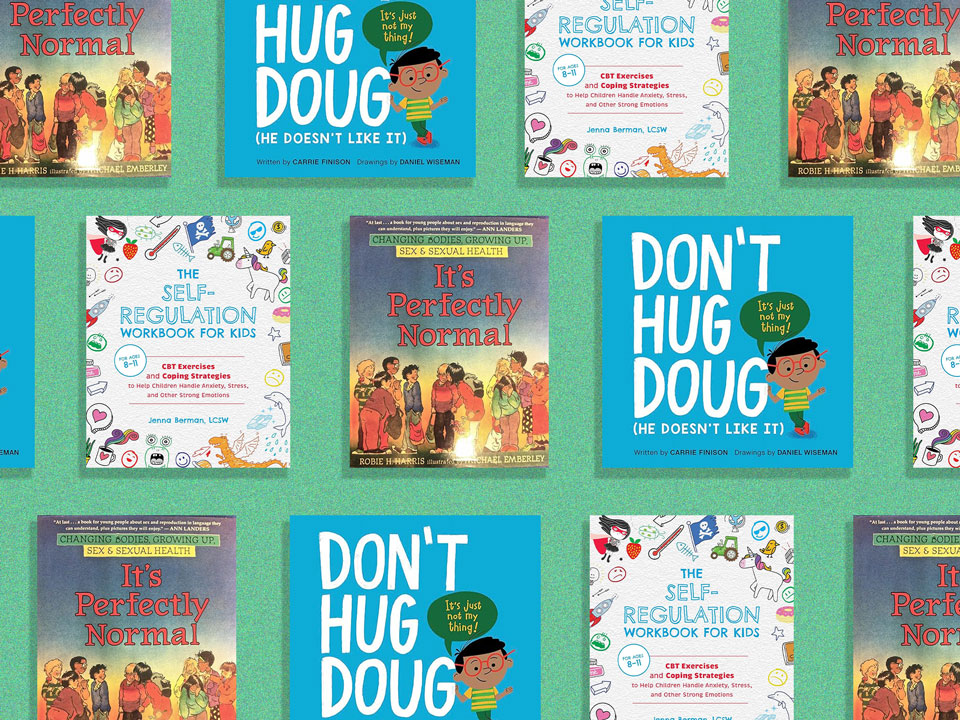
When I was little, I was a big bookworm (still am, honestly) and devoured titles like The Baby-Sitters Club (IYKYK) and Chicken Soup for the Soul. Those were definitely good reads, but, as someone who’s dealt with anxiety from a very young age, I wish I had books that helped me understand how I felt and how to cope. Today, there are actually tons of them.
And that’s kind of amazing since books that tell relatable stories can validate readers by normalizing their experiences. That makes readers, especially the youths, feel more confident and make sense of the world, says Bobbi Wegner, PsyD, clinical psychologist, parenting expert, and author of Raising Feminist Boys. So when titles lean into topics like complicated feelings, tough life experiences, or coping with mental roadblocks, it makes readers (no matter how old) feel better equipped to take on the emotional obstacles in their lives.
If you’re on the hunt for emotionally intelligent stories to help the youngsters in your circle feel ready to tackle life, we asked Dr. Wegner and therapist Amanda Campbell, LMFT, who specializes in children and families at the Center for Early Childhood Connections therapy practice, for their top picks. Add these to your kids’ bookshelf and don’t be surprised if they become an emotional genius.
-
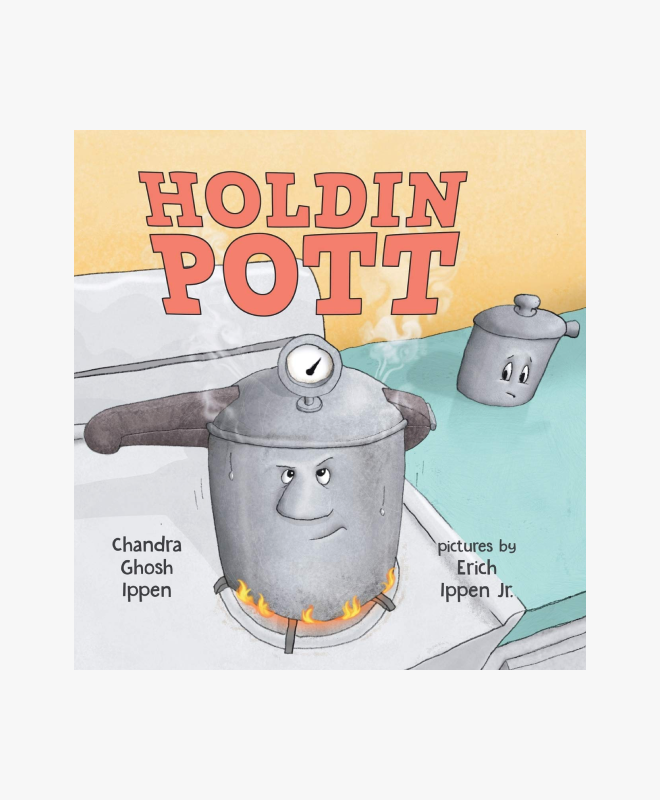 1.Amazon
1.Amazon -
“I love this one because it shares true stories of amazing female leaders acting as great role models. It helps elementary-aged children see their full potential, teaches about loss and challenge, and demonstrates success and resilience—all important parts of mental health.” —Dr. Wegner
-
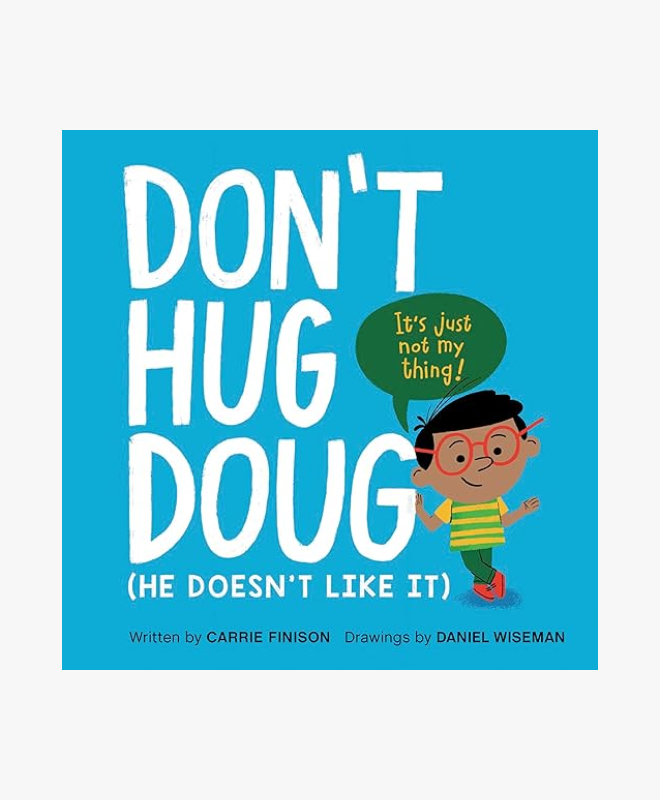 3.Amazon
3.Amazon“This story follows a boy who doesn’t like to be hugged. Our culture often tells children what to do without considering what they’re comfortable with, and this book does a great job of [disputing that narrative by] normalizing bodily autonomy, consent, and personal space. It gives a clear message to preschoolers that you should be in charge of what kind of touch you’re OK with, building their confidence and sense of safety. Plus, it has a sense of humor and great art.” —Campbell
-
“It’s critical to help kids learn self-awareness and emotional regulation skills as early as possible, especially when anxiety seems to be so prevalent today. This interactive workbook aimed at kids 8 to 11 helps them visualize when big feelings tend to strike and learn to navigate those storms so they’re prepared when things get real.”—Dr. Wegner
-
“In a world that seems to praise and prefer extroverts, Captain Starfish is for all the misunderstood introverts out there. It’s centered on a reserved boy who worries about attending a party and all the expectations that come with it. He shares his worries with his family, and they accept him just as he is and make no attempts to change him or pump him up to go to the bash. I’ve shown this story to introverted kiddos who feel so alone and ‘weird’ because they don’t always want to do the same things other children do. One youngster felt so seen after reading it they said, ‘There’s other kids like this? They even made a book about it?’ I’d recommend this for kids around second or third grade.” —Campbell
-
“I absolutely love this interactive and playful book. With fun characters like “Queen Amygdala” and “Lady Gaba” (yup, inspired by Mother Monster), these coloring pages get children of any age (and adults!) curious about how the human brain works and how it connects to emotions. It also explains ways to keep the brain healthy, like getting good sleep and eating healthy food, which are both fundamental to mental health.” —Dr. Wegner
-
“This is the story of a small girl sharing her worries with her mother, and it’s great for normalizing anxiety and showing how adults can help kids. At every turn, the mom answers her daughter’s questions with acceptance, care, and love. I love that the child asks questions like, ‘What if you die?’ and the mother doesn’t tell her not to worry or that it won’t happen; she talks about how her love will always be there even if she physically isn’t. The picture book does a great job of helping parents think of imaginative ways to respond to the worries pre-K and young elementary kids have instead of just explaining and using logic.” —Campbell
-
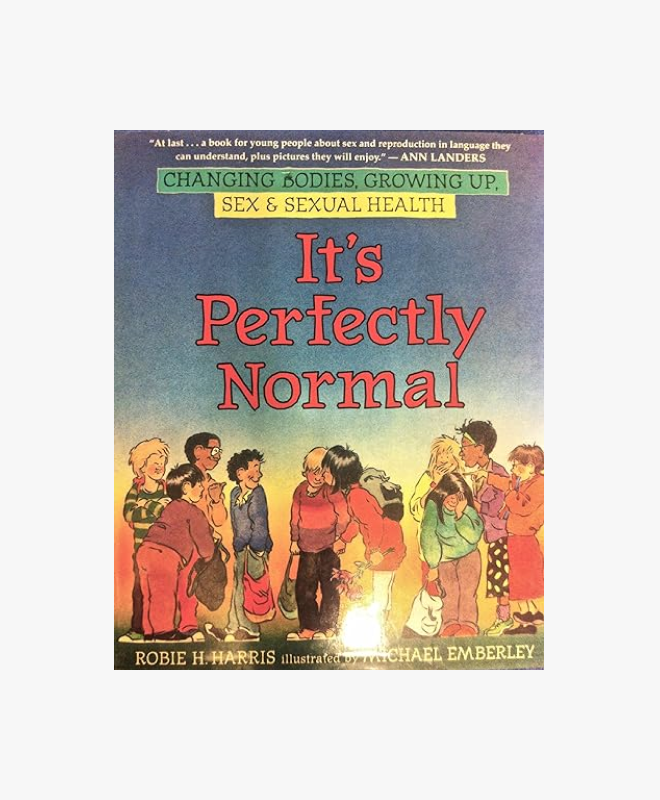
“Understanding sexuality and sexual development is fundamental in how we see ourselves and others, and it contributes to good mental health. This one can help adolescents (up to 14 years old) understand their bodies and sexuality, which is an important part of growing up. These conversations are often a taboo, hush-hush thing, but identity and puberty can be confusing for young people when it goes unexplored or unmentioned.” —Dr. Wegner
-
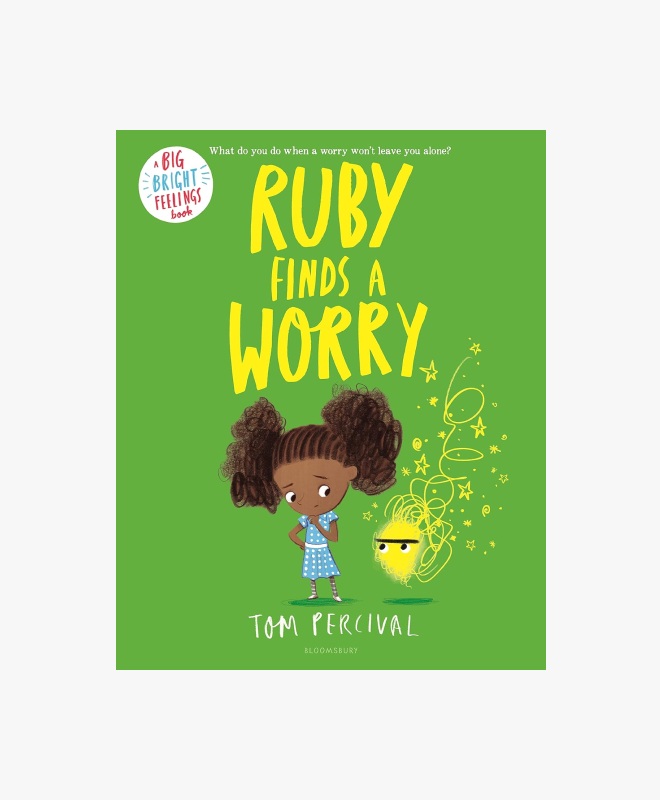 9.Amazon
9.Amazon“I especially like Ruby Finds a Worry because it describes what anxiety feels like, what makes it worse, and what makes it better in the words of children who have a lot of worries. This book reflects diverse communities and helps build empathy and an understanding that everyone has worries.” —Campbell
-
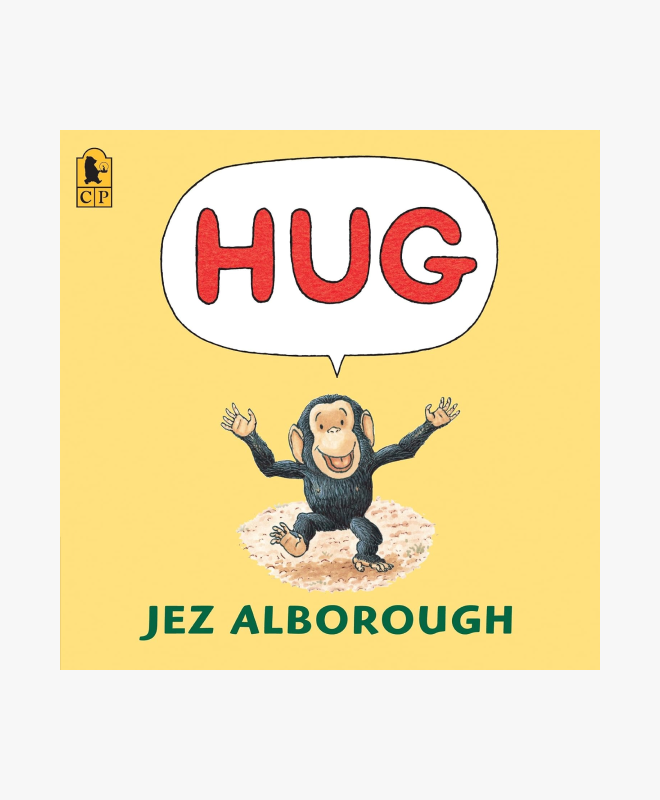 10.Amazon
10.AmazonHug by Jez Alborough
$5.99“This one’s about a little gorilla who needs a good embrace. He only says ‘hug’ as he goes through the jungle searching for one, and the illustrations show his mounting distress as he looks for his family. Eventually, he gets upset and yells for his hug, and the book shows a lovely reunion when the mama finds him. It’s a beautiful depiction of attachment and how stressed babies and children benefit from being close to their caregivers, and the minimal words and beautiful art make it age-appropriate for toddlers.
This was my babies’ favorite, and they always got so happy when the little gorilla finally found his mama. They seemed to really identify with his struggle and found relief in the resolution.” —Campbell
Wondermind does not provide medical advice, diagnosis, or treatment. Any information published on this website or by this brand is not intended as a replacement for medical advice. Always consult a qualified health or mental health professional with any questions or concerns about your mental health.
